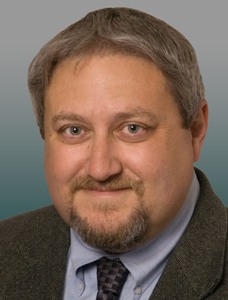Oct 25 2013
The New Horizons in Engineering Distinguished Lectureship Series at Clarkson University has announced that Lawrence Livermore National Laboratory Deputy Director for Science & Technology William H. Goldstein will speak next month in a presentation titled "Does Physics Still Matter?"
 William H. Goldstein
William H. Goldstein
Goldstein will speak on Friday, November 1, at 2:30 p.m. in Clarkson's Bertrand H. Snell Hall Room 213 (hill campus, building #18 at http://www.clarkson.edu/about/clarkson_map.pdf ). Refreshments will precede the lecture at 2 p.m. The lecture is free and open to the public.
"Physics has clearly mattered," says Goldstein in the abstract of his lecture. "From the application of Newton’s laws to the trajectories of projectiles and the use of celestial mechanics for navigation to the discovery and harnessing of nuclear fission, the discovery of semiconductors and the exploitation of quantized spin for NMR imaging, physics has shaped the landscapes of defense, energy, medicine and technology. Modern physics continues to excite the imagination in its searches for dark matter, 'multiverses,' and quantum gravity."
In his talk, Goldstein will give a perspective on the impacts of modern physics from the standpoint of a national laboratory focused on nuclear security. He will discuss the surprising relationship between quantum chromodynamics, the fundamental theory of the strong nuclear interactions, and the reliability of the nuclear stockpile. (It’s not what you might think.)
He will also talk about the nuclear nonproliferation applications of antineutrinos and dark matter detection, the overlap between high-energy astrophysics and counterterrorism, and utility of ultra-cold atoms for homeland security.
Through these examples, he hopes to illustrate that the frontiers of physics continue to have very real-world engineering applications.
As deputy director for Science and Technology, Goldstein is serving as a champion of the laboratory's scientific and technical programs, and leads the strategic deployment of the laboratory's science and technology capabilities. He oversees the lab's portfolio of world-class S&T activities, taking line responsibility for the science, technological and engineering institutional roadmap, including the Laboratory Directed Research and Development (LDRD) Program, collaborative research with academia and private industry and institutional planning activities.
At Livermore, Goldstein’s main research interests have been in computational modeling of highly charged ions, atomic spectroscopy, and radiative processes in plasmas. He helped author and was the first to apply a set of atomic modeling codes that have been used to significantly advance understanding of high energy density plasma properties through spectral modeling.
Goldstein joined the Physics Directorate at Lawrence Livermore National Laboratory in 1985 to work on the computational modeling of many-body atomic systems in high-temperature plasmas. He was named group leader for computational physics in the lab’s nuclear test program in 1989, deputy division leader for high-temperature atomic physics in the Physics and Space Technology Directorate in 1994, and program leader for physical data research in the Stockpile Stewardship and Management Program in 1997. In 1999 he became acting associate director for Physics, and was named associate director for Physics and Advanced Technology in 2001
Goldstein's service to the laboratory spans 27 years and his accomplishments illustrate his strong commitment to supporting major programs within the Department of Energy/National Nuclear Security Administration, National Institutes of Health, Department of Homeland Security, NASA and academic programs.
He received his Ph.D. in theoretical physics from Columbia University in 1983, for work on symmetry breaking in models with composite quarks and leptons. As a post-doc at the Stanford Linear Accelerator Center, he studied magnetic monopoles. Goldstein is a Fellow of the American Association for the Advancement of Science (AAAS) and received the DOE Weapons Recognition of Excellence Award in 1994.
Read more about Goldstein at https://www-pls.llnl.gov/?url=about_pls-scientific_staff-goldstein_w .
William Goldstein will be the ninth lecturer in Clarkson University’s New Horizons in Engineering Distinguished Lectureship series, which is dedicated to improving the understanding of important issues facing engineering and society in the 21st century.
Read more about the New Horizons in Engineering Distinguished Lectureship Series at http://www.clarkson.edu/news/2010/news-release_2010-08-20-3.html.
For more information, please contact Distinguished Research Professor of Engineering Liya Regel, New Horizons in Engineering founder and chair, at [email protected] .
Clarkson University launches leaders into the global economy. One in five alumni already leads as a CEO, VP or equivalent senior executive of a company. Located just outside the Adirondack Park in Potsdam, N.Y., Clarkson is a nationally recognized research university for undergraduates with select graduate programs in signature areas of academic excellence directed toward the world’s pressing issues. Through 50 rigorous programs of study in engineering, business, arts, sciences and health sciences, the entire learning-living community spans boundaries across disciplines, nations and cultures to build powers of observation, challenge the status quo, and connect discovery and engineering innovation with enterprise.